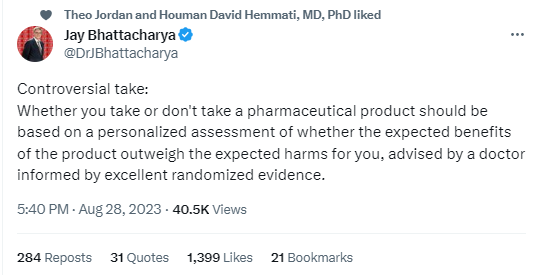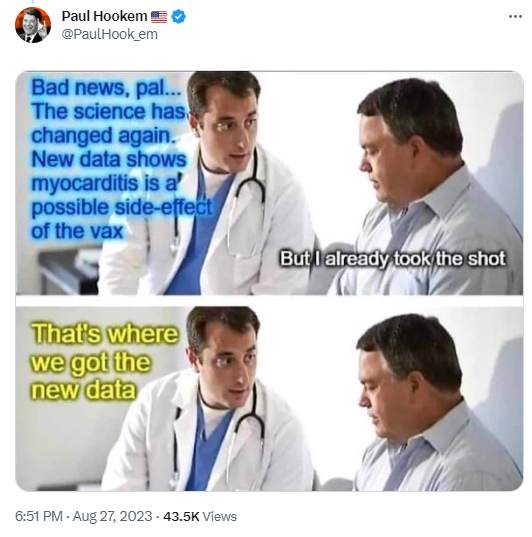When someone claims that the COVID vaccination carries substantial risks, I usually don't pay much attention. I do have deep concerns that these risks are real and that our public health officials and the corporate media have lied to us about most aspects about COVID. But I ignore most such discussions because most of the people who make these claims are people like me, not knowledgable medical researchers. We should pay close attention, however, when the person warning of such risks is Dr. Mike Yeadon, who until 2011 served as the vice-president of Pfizer. Despite his shocking claims and his tenure as a high ranking executive at Pfizer, you will not see his name or any his concerns discussed at NYT, WaPo, CNN, MSNBC or NPR (I searched all five of these website today).

For more of Dr. Yeadon's concerns about COVID and its consequences, consider this 2021 article. Excerpt:
Dr Yeadon outlined that the government has been lying to the public throughout the entirety of the Covid pandemic and that it’s up to the masses to stop them.
“Don’t say you weren’t warned because I’ve been warning people as long as I can and as hard as I can, that you can still right now take your normal society back and take it back tomorrow,” Dr Yeadon said.
In the video, Dr Yeadon explained the Covid-19 restrictions that were introduced at the start of the pandemic (and continue to be used) don’t work. For example, he explains how masks are incapable of preventing the spread of the alleged virus, and that lockdowns never slowed transmission.
Additionally, Dr Yeadon told viewers that they “don’t need to be vaccinated by inadequately tested and somewhat dangerous gene-based, spike protein inducing proteins”, and should instead ignore what corrupt scientists tell them to do.
The former Pfizer Vice President warned that if people don’t wake up in the next few weeks, they will have lost the chance to take back freedoms and return to normal society as vaccine passports will be introduced.
You can hear Yeadon's
6-minute discussion of his views here.
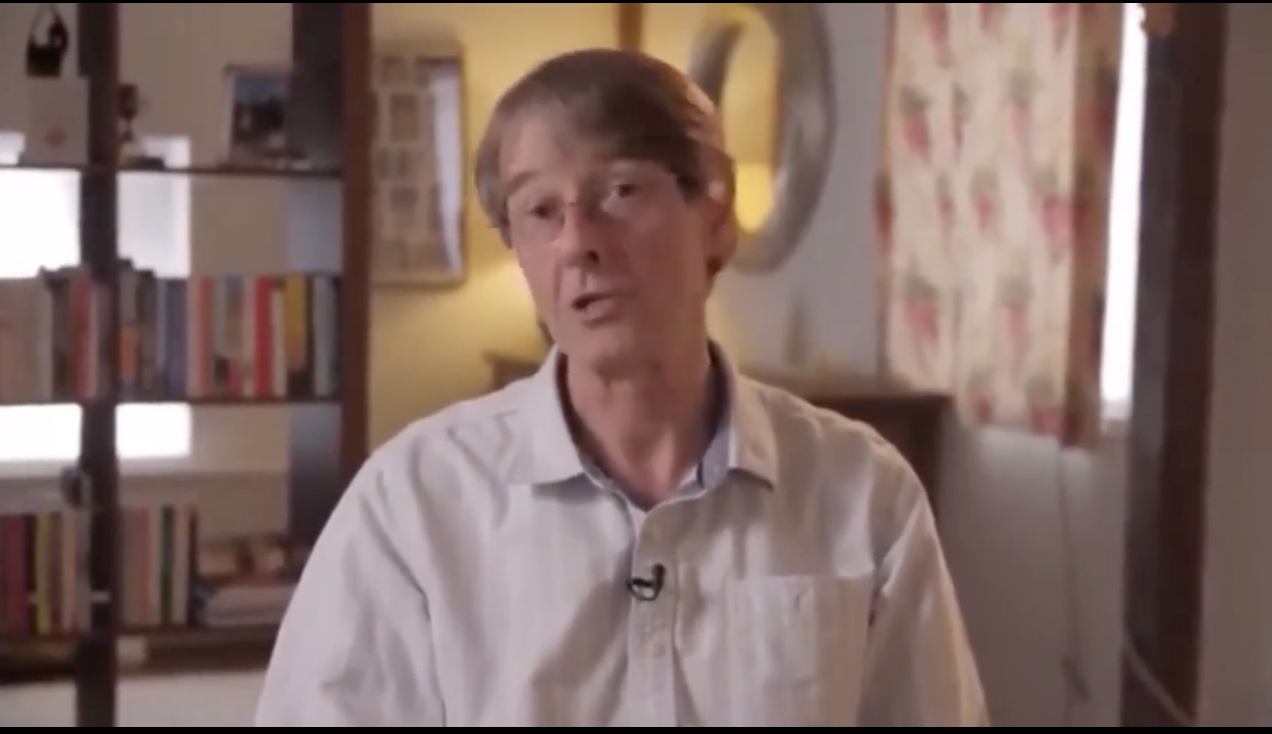
See also the warnings of Dr. Peter McCullough. And see here. I am greatly concerned and I don't know where to turn for highly reliable information. We should be turning to our public health authorities for guidance, but they have little to no credibility. An incomplete sampling of bad ideas presented to us by public health authorities:
1. SARS-CoV-2 coronavirus has a far higher fatality rate than the flu by several orders of magnitude.
2. Everyone is at significant risk to die from this virus.
3. No one has any immunological protection, because this virus is completely new.
4. Asymptomatic people are major drivers of the spread.
5. Locking down—closing schools and businesses, confining people to their homes, stopping non-COVID medical care, and eliminating travel—will stop or eliminate the virus.
6. Masks will protect everyone and stop the spread.
7. The virus is known to be naturally occurring, and claiming it originated in a lab is a conspiracy theory.
8. Teachers are at especially high risk.
9. COVID vaccines stop the spread of the infection.
10. Immune protection only comes from a vaccine.
And
see here.
I wish I had paid better attention to the lack of credibility of the people who acted with such confidence in 2021. I wish I had paid closer attention to the insidious and dangerous incentives driving their false claims. As Upton Sinclair famously stated: "It is difficult to get a man to understand something when his salary depends upon his not understanding it."
Based on what I now understand, I regret having two vaccinations and one booster. In fact, I'm ashamed that I didn't demand more information before taking the experimental jab, but I understand why I gave in, because the information and real discussions were censored. Further, I would have been social excluded in ways that were critically important to my way of life. I'm feeling extra regret because we've long known that Big Pharma, as an industry, has little to no credibility when it comes to claims of safety.
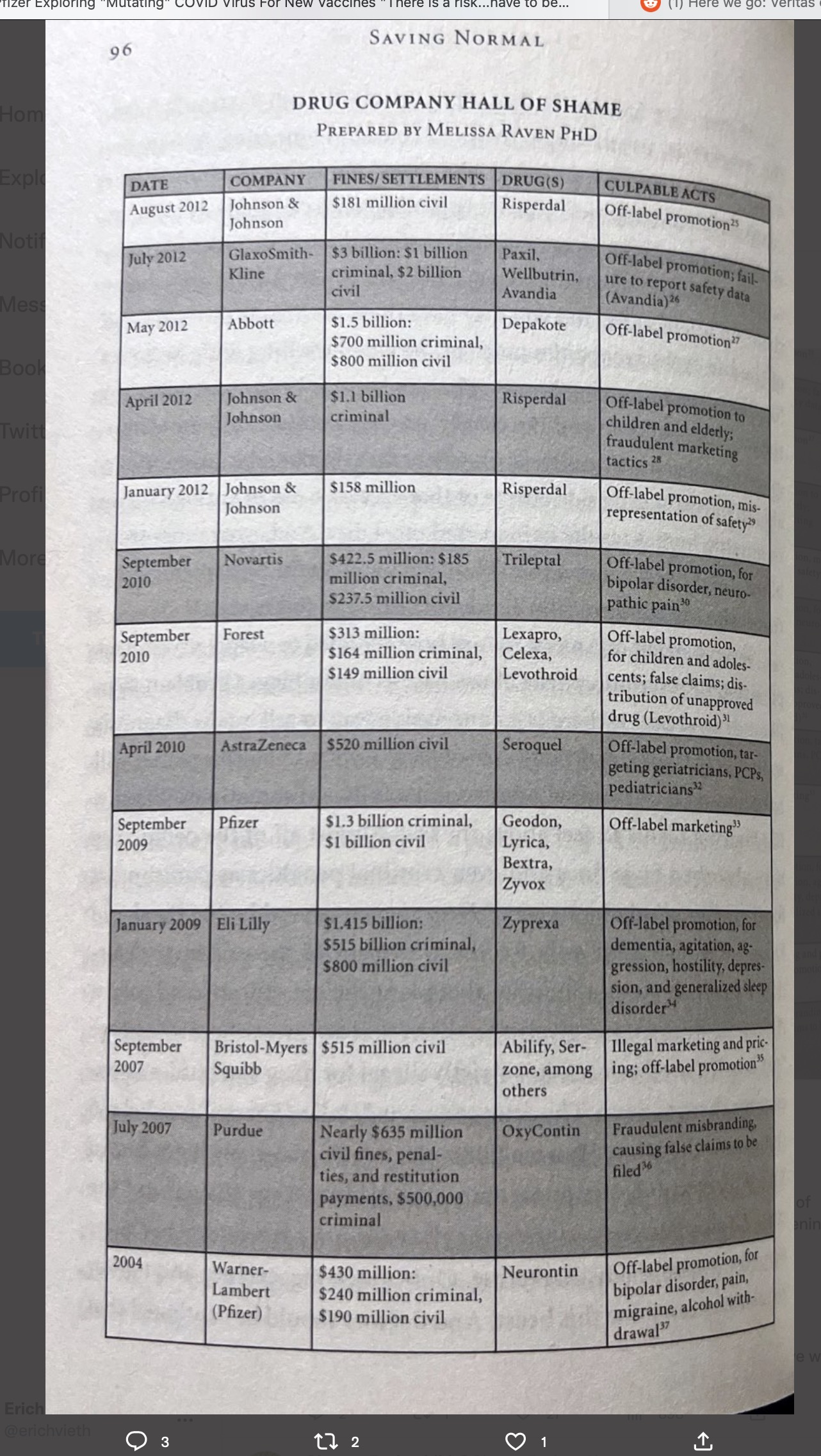
It was deplorable that our public health officials, government officials and social media corporations shut down conversation that was desperately needed in 2020 and 2021.
Now that discussion is starting to happen, the revelations about the effects of effects of the vaccination on a significant number of people are highly concerning. Combine this with the knowledge that has been perfectly clear from early on: Young people were not at risk for COVID and yet well-meaning parents were forced to vaccinate their children. This is horrific, but you might now know any of this because elite corporate media is pushing back ferociously. They march in lock-step with no sense of curiosity, yet they call themselves "journalists." This is utterly dystopian.
Statistics like these need to be vigorously discussed:
Data compiled by the International Olympic Committee show 1,101 sudden deaths in athletes under age 35 between 1966 and 2004, giving us an average annual rate of 29, across all sports. Meanwhile, between March 2021 and March 2022 alone — a single year — at least 769 athletes have suffered cardiac arrest, collapse, and/or have died on the field, worldwide.
Instead, these statistics are suppressed, censored and ridiculed, (and see here) assisted by Google search engine manipulation and Youtube censorship.
Here is Dr. Peter McCullough sounding the alarm:
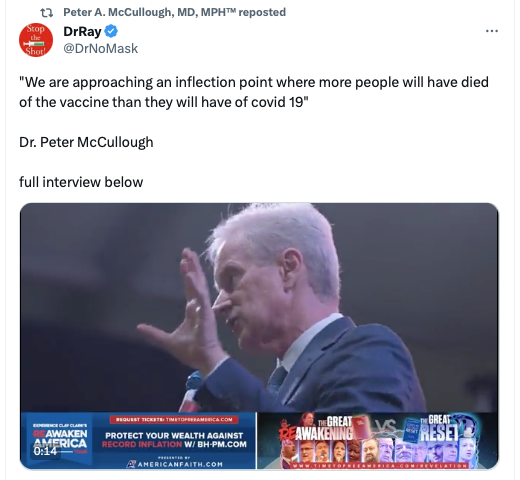
Peter McCullough has a long resume and has published an extraordinary amount of peer reviewed medical research:
Dr. McCullough joined the Henry Ford Heart and Vascular Institute in Detroit following his fellowship at the Beaumont Hospital, where he remained until 2000. He then moved to Kansas City, Missouri, to serve as Section Chief of Cardiology of the University of Missouri-Kansas City School of Medicine, Truman Medical Centers.
After his time in Missouri, Dr. McCullough returned to Michigan to serve as a Consultant Cardiologist at the Beaumont Hospital, and also as Chief, Division of Nutrition and Preventive Medicine Division of Cardiology. In 2010, following his stint at Beaumont Hospital, he was appointed as the Chief Academic and Scientific officer of the St. John Providence Health System, also in Detroit. In 2014, Dr. McCullough joined Baylor University Medical Center as Vice Chief of Internal Medicine. He was also appointed Chief of Cardiovascular Research of the Baylor Heart and Vascular Institute, and Program Director of the Cardiovascular Disease Fellowship Program.²
Dr. McCullough is recognized internationally as a leading figure in the study of chronic kidney disease as a cardiovascular risk state, having over 1,000 publications to his name and over 500 citations in the National Library of Medicine.³ He is also a founder of the Cardio Renal Society of America, which is a group that dedicates itself to bringing cardiologists and nephrologists together to work on the increasing global issue of cardiorenal syndromes. He is the Co-Editor of Reviews in Cardiovascular Medicine and is also currently serving as the Chair of the National Kidney Foundation's Kidney Early Evaluation Program (KEEP), the largest community screening effort for chronic diseases in America.⁴
The problem is that McCullough's opinions are inconvenient to NYT, WaPo, CNN, MSNBC and NPR, so you will note even see his name mentioned by any of these "journalists" (I checked today). The "truth" is determined by something other than free and open discussion/dissent and the media corporations continue to march in lock-step.
That's how it is, here in the year 2023. Have we learned anything? Will we be better able to resist the next round of authoritarian coercion? Time will tell.






